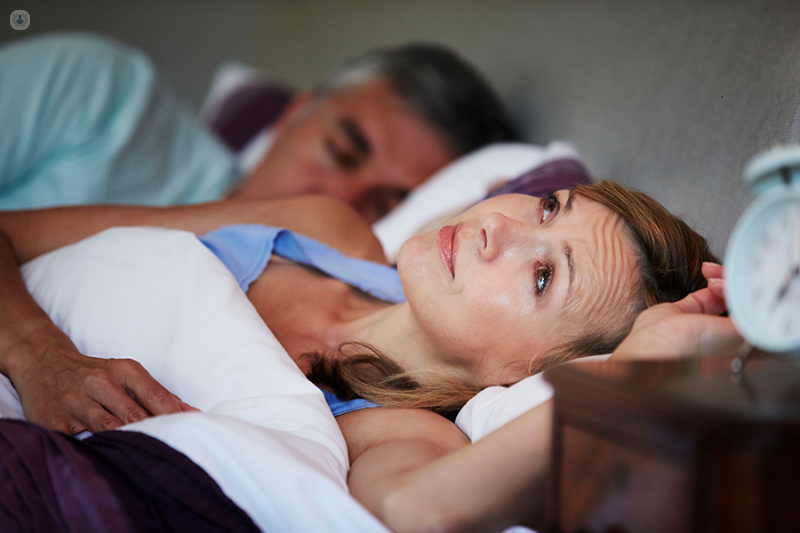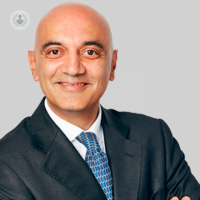Looking after yourself during the menopause
Autore:Type “menopause treatment” into Google and you’ll get over 50 million results – so how do you know what works? Consultant Gynaecologist Mr Arvind Vashisht completed his doctoral thesis in hormonal replacements therapies, and is here to explain the main treatments on offer.

The menopause can be a difficult period of change, but with the right treatment and lifestyle habits, you can improve your symptoms. Here is some guidance on what you can do:
How to keep yourself healthy and well
It’s hard to underestimate the positive effect that looking after yourself has during this time. In particular, a healthy balanced diet and regular exercise are helpful in reducing some of the associated symptoms of the menopause and are important for long term disease prevention such as osteoporosis.
Trying out “natural” remedies
Alternative remedies are popular, as many women are keen to try natural remedies and may be worried about the risks of taking hormone replacement therapy (“HRT”). There are a wide range of treatments over the counter, as well as options such as acupuncture and cognitive behavioural therapy to treat some of the common symptoms of the menopause. Popular treatments that have been shown be effective include Black Cohosh and St. Johns Wort. Many people also regard soya and soya-derived products as beneficial for reducing hot flushes.
On the whole, it’s difficult to determine how effective all these remedies are. You may try to see if they help you, but the important thing is to tell your doctor. Unfortunately some of the treatments can cause harm and it is important to look for traditional herbal registration (THR) logo which provides a check on product dosage, quality and information. Having some kind of medical supervision is useful in case you get side effects, and you need to make sure that what you’re taking won’t interact badly with any other medications you’re currently on.
When to consider hormone therapy
If you are troubled with symptoms, the mainstay of effective treatment for the menopause is HRT. For most people this means taking oestrogen and progestogen (combined HRT). There are more than 50 types available and can be taken by mouth, or through the skin. It should generally be taken at the lowest effective dose.
The balance of benefits and risks is different for each person, and ultimately, opting for HRT is a personal choice. I would recommend having a review on an annual basis to monitor treatment.
HRT has many benefits. It is the most effective treatment for the commonest symptoms such as night sweats and hot flushes; it can protect you from longer term related conditions including osteoporosis.
Contrary to popular belief, most studies show that HRT does not cause weight gain, but certainly around the time of the menopause, women have a tendency to weight gain and again diet and exercise become particularly important.
Women are understandably worried about the risks of HRT and these have variably reported in the media over the last twenty years. One of the biggest fears is that of breast cancer. Combined HRT can be associated with a small increased risk, which is related to treatment duration and stops when treatment stops. Put into context, the risk of breast cancer can be significantly more reduced in women by undertaking regular weekly exercise.
However, in some people HRT carries higher risks, especially if you have a history (or strong family history) of breast cancer or blood blotting problems. For these women it might make sense to take HRT locally, or not at all.
Stopping hormone therapy
Stopping HRT is a careful consideration. There isn't a “right time” to stop, but it's personal to each individual.
There are ways of carefully weaning yourself off HRT if you want to. That way, any withdrawal symptoms can be carefully managed and planned for.


